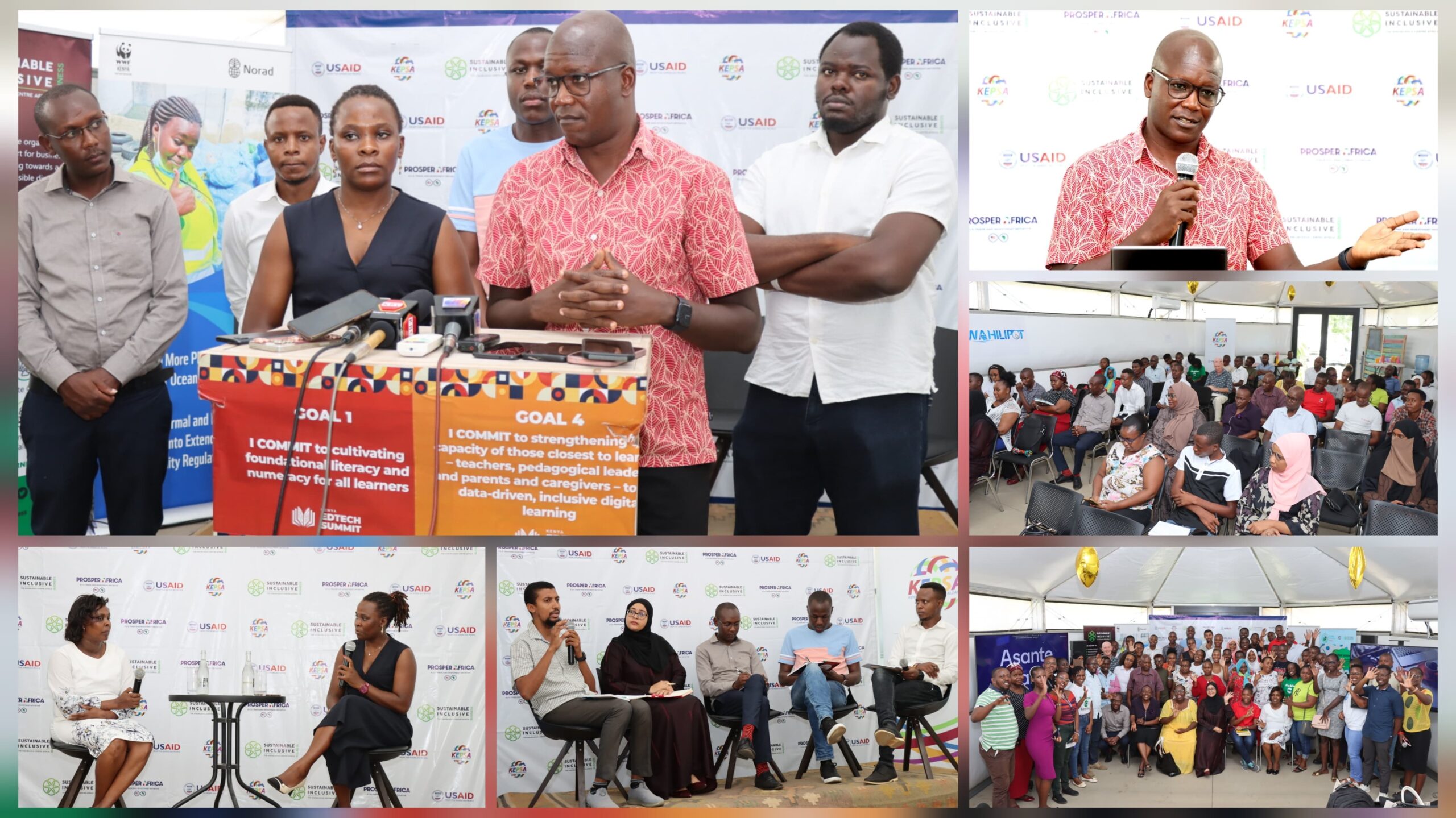KEPSA Takes the EPR Conversation to Mombasa in a Move to Assist Compliance among Businesses
[Mombasa, 13th March 2024]: The Kenya Private Sector Alliance (KEPSA), through its knowledge center, the Sustainable Inclusive Business Kenya (SIB-K), has today successfully hosted a highly collaborative sensitization workshop in Mombasa. This workshop, supported by USAID and Prosper Africa, was a joint effort to encourage proactive compliance with the Extended Producer Responsibility (EPR) regulation among private sector stakeholders, emphasizing their integral role in the implementation process.
The workshop, a significant milestone in the EPR conversation, fostered a platform for constructive dialogue between industry representatives, the National Environmental Management Authority (NEMA), the regulatory authority overseeing EPR implementation, and the Mombasa County Government, the custodian of waste management as a devolved function. The outcomes of this dialogue, which are crucial for both private and public stakeholders, provide an opportunity for proactive compliance with the EPR regulation, underlining the positive impact it can have on the environment.

“The fight against zero waste is won and lost millions of times every single day in each of our choices. With every wrapper, bag, and new item we buy, we directly influence all those systems, and we can opt-out. Perhaps it should start with the Producer Responsibility Organizations (PROs) honoring their obligations outlined in the EPR regulations. Establish post-consumer collection and take-back schemes, which may include incentives like a deposit refund system; take financial, organizational, and physical responsibility for the management, treatment, and disposal of their post-consumer products; and end-of-life treatment for the waste generated by their products,” stated H.E. DG Francis Thoya, Deputy Governor of Mombasa County, in his keynote address during the event.
EPR is not just a regulatory requirement but a pivotal strategy aimed at holding producers accountable for the entire lifecycle of their products, from design to disposal. For this reason, the workshop shed light on phase one of the implementation, including data collection and environmental cleanup efforts.
Josephine Wawira, the Communications Lead at KEPSA, said, “The private sector’s active participation in the implementation process is not just crucial; it’s invaluable. We deeply appreciate their contribution and collaboration with the public sector, including with NEMA and the county governments. This is a unique opportunity for the private sector to lead the way in sustainable business practices.”
Her sentiments were echoed by Ms. Annastacia Mumbua Vyalu, the Senior Environment Officer at the National Environment Management Authority (NEMA) who commended the private sector for their commitment to EPR implementation and reiterated the authority’s unwavering support in providing guidance and resources to facilitate compliance.
She stated, “NEMA recognizes the importance of partnership with industry stakeholders in achieving our environmental objectives. We are committed to working collaboratively to ensure the successful implementation of EPR measures, starting with working with businesses on credible data collection and cleaning of the environment.”
Throughout the session, participants discussed the challenges, opportunities, and best practices associated with EPR. Key topics addressed included the crucial importance of public-private-community collaborations and investments for successful EPR implementation.
“For EPR to realize greater impacts, integration of waste management value chain actors is imperative. This includes intentionally including grassroots and community-based waste management associations and groups who have been perennial waste collectors. The EPR fees should trickle down to these groups through a waste collection kitty as payment for environmental services,” emphasized Henry Munyao, Project Officer, Circular Economy Initiative Programme at WWF- Kenya.
The role of innovation in sustainable waste management, product design for recyclability, and strategies for enhancing compliance with EPR regulations were also discussed.
“Innovation is at the heart of sustainable business practices, and it trickles down to waste management on the ground. By working hand in hand with all stakeholders, we’re underscoring our collective responsibility in advancing the principles of EPR,” noted Dr. Tayba Hatimy, Co-Founder and Executive Director of BAUS Taka.
Dennis Kiplagat, Senior Project Officer at Sustainable Inclusive Business, emphasized the need for industry stakeholders to prioritize eco-friendly materials and end-of-life considerations when designing products. “By leveraging technology and circular designs such as those developed by the Kenya Plastics Pact on plastics, we can develop products that are not only economically viable but also environmentally friendly, in line with the EPR requirements,” he stated.
James Odongo, the Chief Executive Officer of the Kenya Producer Responsibility Organization (KEPRO), added, “Compliance is a fundamental component of the private sector’s sustainability efforts. I hope this platform encourages businesses to leverage the insights gained to inform their organizational strategies and actively participate in ongoing EPR initiatives.”
“As a county, we are committed to implementing EPR measures to alleviate the burden on our environment and foster sustainable waste management practices, ensuring a healthier future for our community,” concluded Abdulsalam Omar, Director of Climate Change, County Government of Mombasa.
The workshop brought together about 100 private sector representatives, industry experts, representatives of formal and informal waste sectors, government officials, and development partners. It reaffirmed the multi-stakeholder commitment to environmental stewardship and collective action to support a greener, more sustainable future.
For media inquiries, please contact Josephine@sustainableinclusivebusiness.org.


